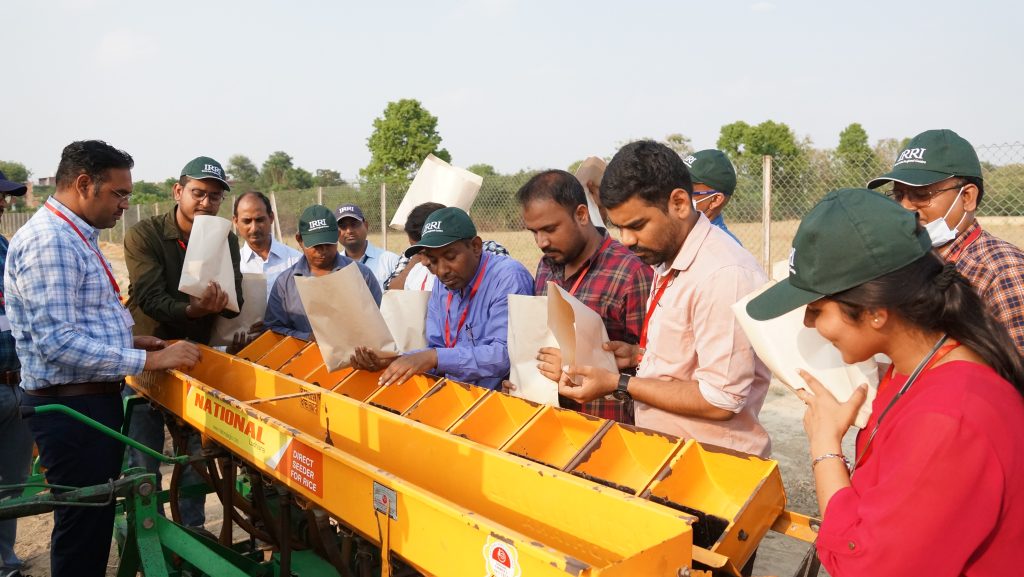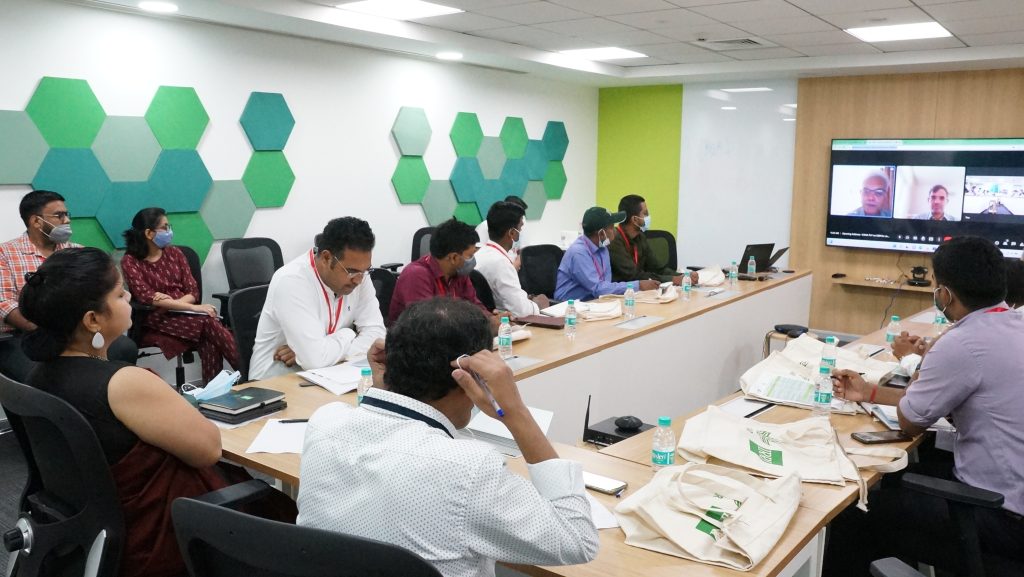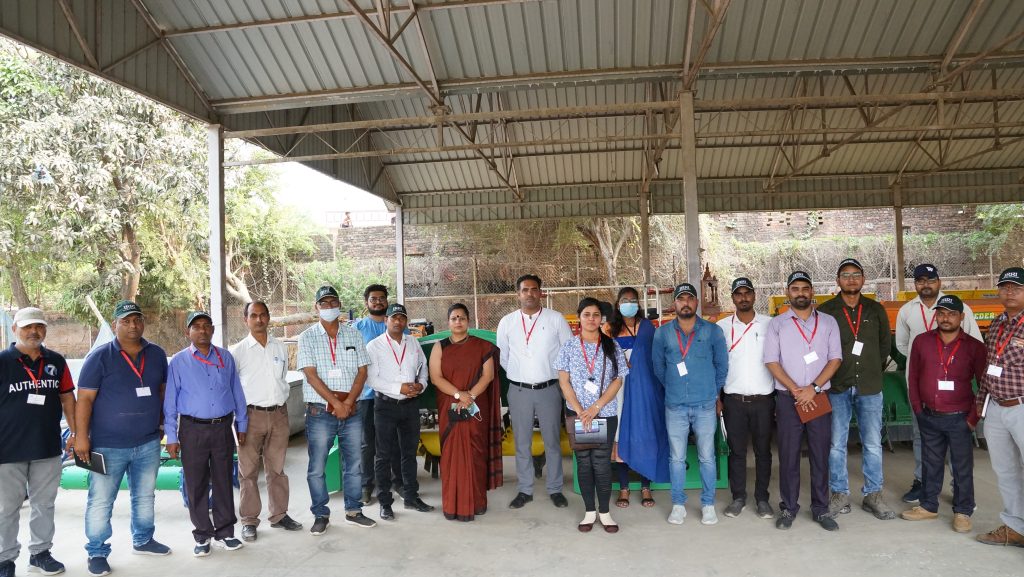Mechanized Direct Seeded Rice (DSR) hands-on training of JEEViKA officials by CSISA – ISARC
CSISA project in partnership with JEEViKA supports an inclusive extension system in Bihar to empower woman farmers

COVID 19 has pushed 548 million people below the poverty line, most living in rural areas. The agricultural systems, as a result, have more people depending on them for livelihoods and food security. The role of the extension system is crucial in dealing with these ever-increasing demands and threats as far as food production is concerned.
An equal level playing field for women as far as acquiring knowledge on technologies reducing their drudgery, and increasing productivity are crucial. If women are provided with equal access to productive resources as men, they could increase yield by 20-30 percent (FAO 2011). Availability and access to improved technology within reach of women farmers become imperative for food security.
To increase women’s awareness and access to improved technologies and matching agronomy practices, a two-day (11 -12 May) residential training program on Mechanized and Precise, Direct-Seeded Rice (DSR) technology was organized for officials of Bihar Rural Livelihood Promotions Society (JEEViKA). CSISA (Cereal Systems Initiative for South Asia) hosted the training at ISARC (IRRI South Asia Regional Centre) in Varanasi, Uttar Pradesh.
The training aimed to create a pool of master trainers in JEEViKA who could further impart the knowledge and technologies demonstrated in their work area to women farmers. CSISA has been working extensively with JEEViKA to promote sustainable agriculture practices and technologies among the small and marginal farmers, especially women farmers in Bihar. The training attended by 14 officials of JEEViKA representing six districts ― Buxar, Muzaffarpur, Rohtas, Samastipur, Madhepura, and East Champaran — work directly with women farmers. Shri Anil Kumar, Program Manager of livelihood, JEEViKA, accompanied the team with Ms. Sugandha Munshi, CSISA Gender lead, from Bihar.

The program covered detailed technical sessions on the principles and practices of DSR. Dr. Pradeep Sagwal, Associate Scientist – Systems Agronomy, led the hands-on training and technical sessions. While Dr. Ashok Yadav, Dr. M.K. Bowmick, & Dr. Vipin Ahlawat, the key experts from IRRI (International Rice Research Institute), shared their experiences with participants in respective technical sessions. At the beginning of the training, Dr. Virender Kumar, Global Coordinator, Direct Seeded Rice Consortium, presented the global and regional overview of the Direct Seeded Rice Technology and its relevance in sustainably increasing yield to the participants. At the same time, Dr. Sudhanshu Singh, Director of ISARC greeted the participants and appreciated their contribution to taking the technology forward into the hands of women. JEEViKA team also visited the ISARC laboratories and farm facilities. P. Panneerselvam Scientist Cropping system agronomy formally welcomed all the participants and interacted with trainees at the center.

Shri Anil Kumar, recognizing the importance of the DSR technology for the small and marginal farmers, especially women, said that the capacity building of the officials as master trainers would help them execute DSR demonstrations for impact on farming. After attending technical sessions, hand-on machine operations, and field exercises, all participants are confident of the knowledge gained and are looking forward to applying it with JEEViKA farmers.
